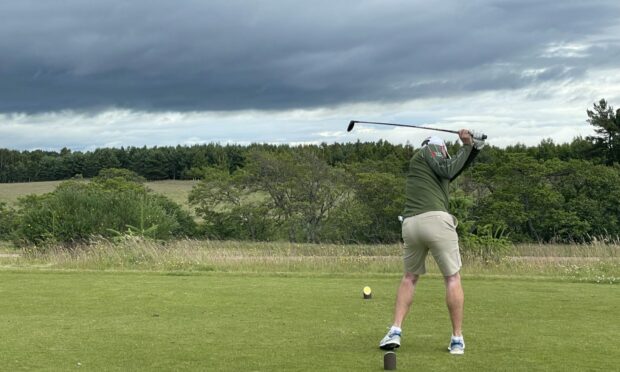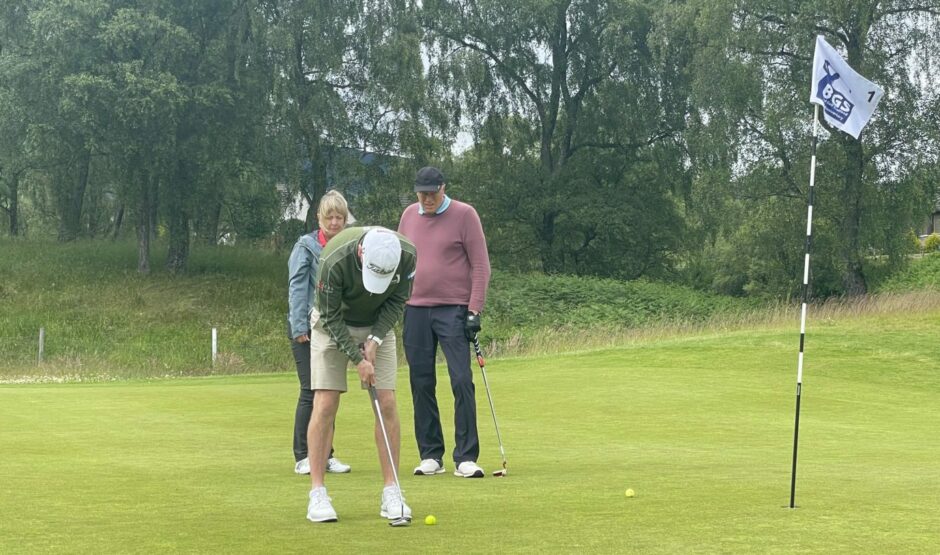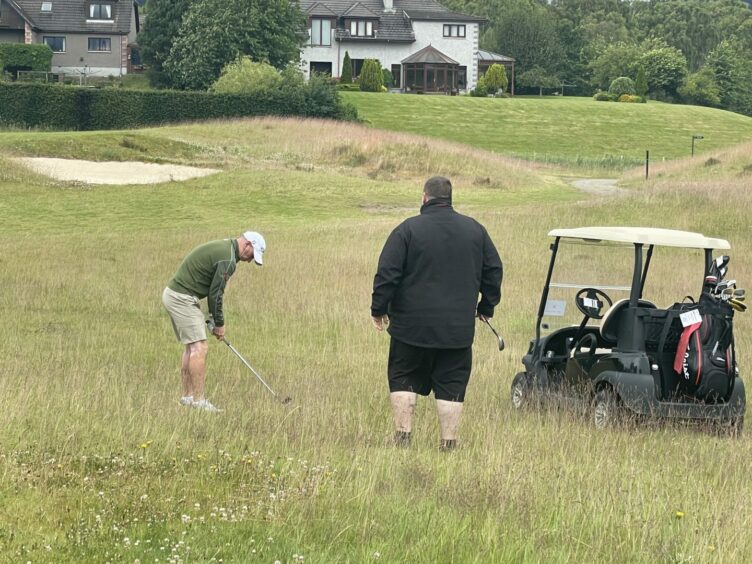Blind golf champion Barry McCluskey has shared his passion for his sport at the British Blind Golf Open in Aviemore.
Fresh from winning the Spanish Blind Golf Open, McCluskey is keen to share why blind golf is an important disability sport.
The 2022 British Blind Golf Open was held in Aviemore at the Spey Valley Golf Course, with golfers supported by a guide.
It is fitting that the event has returned to Scotland this year as it is also the 40th anniversary of the Scottish Blind Golf competition.
A total of 22 players from around the world took part over the three days beginning with a practice day on Monday.
Golfers compete in three categories depending on their level of visual impairment, with Barry McCluskey, 41, alongside people who can see up to 30 yards.
Five prizes will be awarded to the winner of each category, an overall winner and a ladies’ champion – two women are competing for the title.
The event, organised by Blind Golf Scotland, didn’t have the best weather however the tournament made for a thrilling competition.
Mr McCluskey – fresh from winning the Spanish Blind Golf Open – competed at the event and is eager for more funding to promote the sport.
He said: “We are promoting blind golf within Scotland by having the British Open here in Aviemore.
“We are trying to encourage as many blind and visually-impaired people as we can to come and try the sport out and this is the perfect arena to do that.
“While this is one of the biggest events on the calendar, we don’t get enough exposure and promotion. There should be more funding for disabled golf.”
The European Golf Tour organised by the PGA is currently looking to work alongside EDGA (European Disabled Golf Association) to promote disability golf.
‘There should be more funding for disabled golf.’
Blind golf is not as widely recognised as some disability sports, having been excluded from the 2024 Summer Paralympics in Paris.
Mr McCluskey believes that blind golf is gaining more support in the past few years and makes for a competitive but social event.
After losing his sight in 2018, Mr McCluskey believed his golfing days were over however his doctor gave him the idea to take up the sport of blind golf.
He said: “It’s not just about the competitive side of blind golf but also the social side, and the mental health benefits of being amongst your peers are incredible.
“Before I lost my sight I didn’t know anyone that was blind, so to lose your sight, you then feel isolated.
“Playing with other blind golfers allows you to see how they are interacting and how they are getting on with their lives, and it gives you the inspiration to do it with your life.”
Mr McCluskey says that the group of blind golfers act as a peer group who are very competitive on the golf course but are all friends back at the club.
Looking to the future, Mr McCluskey hopes to help young aspiring golfers who are visually impaired by promoting the sport in schools across the country.
He added: “A lot of people when they play golf like to hit the ball and see where it goes.
“For blind golfers, and for myself, I know instantly if I have hit a good shot with just the feel of the ball hitting the golf club.
“Our guides are crucial and we can’t play golf without them. When they describe shots to you and tell you how good you’ve hit it, it makes you feel good inside, so that’s what we want to encourage young people to do now.”



Conversation